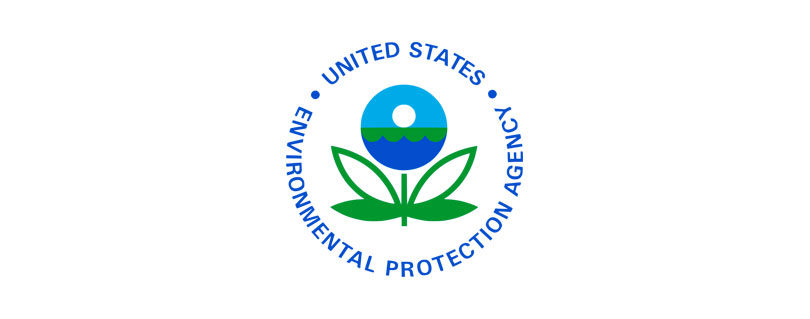EPA celebrates 20 years of methane reduction accomplishments at the Global Methane Forum
Publilshed by the U.S. Environmental Protection Agency (EPA)
GENEVA – As part of the Biden-Harris Administration’s commitment to cut methane pollution that threatens the climate and public health, the EPA and State Department officials convened a group of 450 global leaders at the 2024 Global Methane Forum this week. The Global Methane Forum provides an opportunity for members of the Global Methane Initiative, participants of the Global Methane Pledge and others to share successful actions, discuss next steps, and learn from peers and technical experts.
“This event marks the Global Methane Initiative’s 20th anniversary as a global public-private partnership that, since 2004, has led the way on advancing technical understanding to reduce methane, a potent greenhouse gas that contributes about one-third of today’s warming,” said Tomás Carbonell, Deputy Assistant Administrator of the EPA’s Office of Air and Radiation and Chair of GMI. “GMI has created networks of people around the world who can act on methane and achieve ambitious reductions. We are grateful to see the world rallying behind this important effort as we know that together we can mobilize greater methane action.”
At the 2024 Global Methane Forum, the U.S., and representatives from more than 50 other countries highlighted actions taken by national and international policy makers and the private sector to reduce methane emissions. Over 30 specific projects and activities were showcased as examples for countries to emulate in addressing methane, including the EPA’s recent historic oil and gas regulations under the Clean Air Act.
“Methane is the fastest way to reduce near term warming and essential to keep 1.5 degrees within reach,” said Rick Duke, Deputy Special Envoy for Climate. “GMI has led the way in demonstrating how to reduce methane across sectors and laid a foundation to achieve the Global Methane Pledge goal of reducing emissions 30% by 2030.”
GMI plays a critical role in advancing technical understanding that advances the ambitious global methane reduction targets of 30% by 2030, under the Global Methane Pledge. GMI has enabled the EPA to forge strong bilateral and multilateral collaboration with other countries, including India and China, in the effort to reduce methane emissions as quickly as possible.
Global Methane Initiative
In 2004 the EPA and the State Department launched the Global Methane Initiative (then known as the Methane to Markets Partnership) along with 14 countries and leading industry groups. There are 49 GMI Partner countries today.
In support of the Global Methane Initiative, an international public-private partnership committed to addressing methane, the U.S. has fostered global collaboration and sharing on methane mitigation strategies, providing technical assistance, building capacity, and hosting eight GMI Global Methane Forums and Expos in five different countries and virtually.
Through the Global Methane Initiative, the EPA spearheads technical collaboration and innovation that leads to methane emissions reductions across key sectors including oil and gas, coal mining, municipal solid waste, agricultural manure management, and municipal wastewater. The EPA’s work has demonstrated the technical effectiveness, commercial availability, and economic benefits of projects that convert waste methane into useful energy. The EPA’s technical leadership has been a critical element in the success of this initiative, based on successful legacy domestic public-private partnerships like the Natural Gas STAR partnership and the Landfill Methane Outreach Program.
Since 2004, the EPA, with funding and support from the Department of State, has developed technical assessments, best practices, technical guidance, and tools, and provided training to more than 50,000 people across 70 countries. EPA has hosted the Secretariat of the GMI since its launch, organizing meetings, workshops, and trainings, and managing communications to build partner countries’ capacity to address methane. GMI efforts have led to implementation of innovative projects and efforts such as the world’s largest coal mine methane recovery project, the World Bank’s innovative Pilot Auction Facility for Methane and Climate, deployment of pioneering technologies to reduce methane emissions from coal mine ventilation shafts, strengthened facility-specific emissions inventories in the oil and gas sector, and developed tools for the solid waste sector that have been used by more than 60 cities to assess methane reduction opportunities. These efforts through GMI have resulted in methane emissions reductions of more than 540 million metric tons of carbon dioxide equivalent, equal to taking 115 million gasoline powered passenger vehicles off the road for a year. Every $1 invested by the United States in GMI leverages approximately $6 in investments from other stakeholders.
Global Methane Pledge
The Global Methane Pledge, launched at COP26 by the European Union and the United States, now has over 155 government participants representing over 50% of global anthropogenic methane emissions. Participants agree to take voluntary actions to contribute to a collective effort to reduce global methane emissions by at least 30% from 2020 levels by 2030. Since its launch, the GMP has generated unprecedented momentum for methane mitigation, with major work underway in six action areas including: the Energy Pathway, the Waste Pathway, the Food and Agriculture Pathway, Methane plans and policies, Data for Methane Action, and Finance for Methane Abatement. Meeting the GMP would reduce methane emissions to a level consistent with 1.5°C pathways while delivering significant benefits for human health, food security, and our economies such as preventing 26 million tons of crop losses, 255,000 premature deaths, 775,000 asthma-related hospitalizations and 73 billion hours of lost labor due to extreme heat annually. Learn more about the Global Methane Pledge.
Read the full article at: https://www.epa.gov/newsreleases/epa-celebrates-20-years-methane-reduction-accomplishments-global-methane-forum



